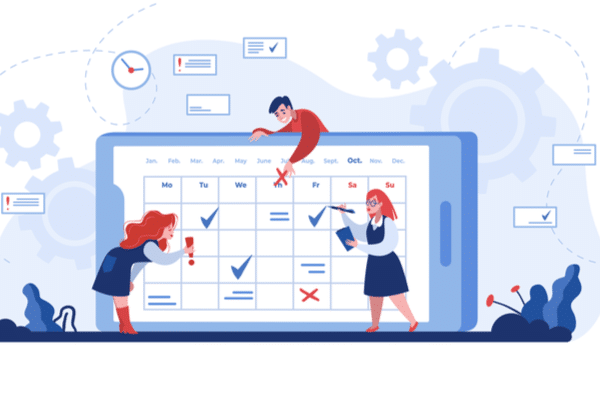As law firms continue to adopt new modes of working and running a practice remotely, they seek scalable matter management systems to increase operational efficiency. The most significant benefits of a Cloud-based SaaS software platform are that it reduces operation time, boosts productivity, and can be accessed from anywhere, anytime and from any internet-enabled device (mobile, tablets, and desktop).
It enables the law firm’s partners to focus on the core functions of their business. Features like case management, task management, calendar management, workflows, and advance reporting improve team collaboration and communication. However, irrespective of the power of case management software, it can lead to increased operational bottlenecks and wasted resources if the software isn’t implemented correctly.
Here are five task management mistakes that you should avoid if you want to reap the benefits of superior case management technology.
Lack of accountability
To build accountability before work on the project even begins, it’s important to not only be clear on tasks and who they’re assigned to, but also the context of how the overall project ties to larger team goals. There should be check-ins to assess progress and performance.
Acknowledging successes and areas that could use improvement are key ways to keep your team accountable and build a culture of continuous improvement.
Cloud-based case management software offers many features; it can sometimes be challenging to make it work for your business without clear objectives. You need to dig deeper and find the software that is designed for your niche. E.g., personal injury law firms cannot work with the software that offers time tracking as a core feature because the plaintiff lawyers don’t bill on an hourly basis.
Lack of software training
It’s a mistake to expect your staff members to learn how to use task management software all by themselves; not everyone is technologically gifted. At the same time, many software products provide in-depth tutorials to help users to understand how the platform works. As a partner of the firm, you can go with the software that requires minimal training to ensure each team member is aware of their role and knows how to track their tasks, update the status of the tasks, and how the overall software functions.
Training is crucial for each member because, in a law firm where multiple people will be working on any one case, updates, including crucial case information are made regularly to keep everyone working cohesively. This is magnified when your team is working collaboratively on many cases and timely updates are critical to the progress of the case. Training reduces the chance of mistakes when there are many active cases in the pipeline.
Lack of task prioritization
For many law firms, especially personal injury law firms, cases run concurrently, and managing tasks of all those cases without getting overwhelmed isn’t easy. Often, staff members can get engaged in low priority tasks, and more important tasks can get pushed away. A case management software with the best task management software for law firms can prevent this from happening. It can allow the user or admin of the software to prioritize the task in a way that is obvious for the entire law firm.
One way to prioritize the tasks is to simplify the tasks workflow with smaller tasks at any stage of the case. With CloudLex, no matter the stage of the case, be it a new case or one in the trial you can choose from a set of predefined sets of tasks in different categories. You can then assign an appropriate priority level to each task – high, medium, or low.
Missing employee performance
Even though task management makes sense for both in-office or remote workers, there is a natural performance reporting dilemma in law firms. Lack of clarity in reporting or not knowing the importance of reports can become a bottleneck, and law firms need to recognize, assess, and reward productivity.
You can quickly solve this problem by encouraging staff members to create, track, and update status from time to time so that you can quantify the time spent on completing the tasks. You can measure the tasks completed in a month or track milestones as they are achieved. In the end, the task management enables you to move beyond traditional ways of reporting.
Lack of communication
Effective communication in law firms is at the core of any good case management, and spending days without updating or communicating with other staff members or clients can halt the progress.
Remote workers or in-office staff using task management tools shouldn’t feel isolated just because they use a cloud-based system. Simple guidelines like a deliverable review, regular touch-base meetings, status check-ins, and one-on-one communication can help you keep track of tasks, and help staff members to not feel isolated.
Just signing up for a new case management tool won’t provide magical results. It may simplify a lot of internal processes for you; however, as long as you don’t commit the above mistakes, your case management tool can deliver a great experience and boost the productivity of your staff members in no time.
Also Read:
1) Why Task Management Is Important for Personal Injury Law Firms?

